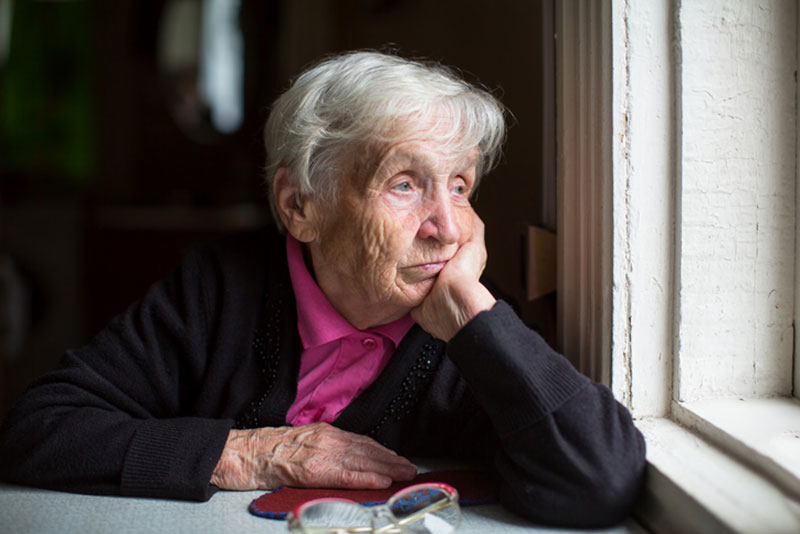
What is anhedonia and could your loved one be suffering from it?
Following the thrill of the holidays, it is not unusual for the winter doldrums to kick in. Yet what might look at first to be a little bit of boredom could in reality be something much more serious that needs to be addressed.
What Is Anhedonia?
Anhedonia is a loss of interest in activities that a person once loved and is a symptom of depression that is commonly dismissed in older adults. Anhedonia presents through symptoms such as:
- A need to self-isolate and avoid social activities and relationships
- A decrease in emotional abilities
- Negative feelings directed towards either other people or themselves
It’s always a good idea to talk with a doctor if you observe any signs of depression in an older loved one. Effective treatment options are available to help. Furthermore, there are things family caregivers can do to help, too.
What Can You Do to Help an Older Loved One Struggling With Anhedonia?
- Modify the diet. Foods that contain serotonin can help improve a person’s mood and fight depression. Add in more mood-boosting foods such as dark chocolate, spinach, yogurt, whole-grain bread, and fruit.
- Encourage exercise. Physical exercise is an additional way to boost mood through the release of feel-good hormones. Bring the grandkids over to play, head to the gym for a class or to go swimming, or simply take a walk together.
- Improve sleep habits. Sleep deprivation and anhedonia can play off each other in a cycle of lack of motivation, anxiety, and fatigue. Develop and stick to a regular sleep schedule, have a light dinner and then power down the TV and devices, and end the day with comforting activities such as working on a puzzle, reading a book, or listening to music.
- Get together with friends more often. This one might be difficult, as anhedonia impacts a person’s desire to be around others. Determine what types of social settings might feel less daunting to the person: enrolling in a course, becoming a member of a group at their place of worship, regular lunch or coffee get-togethers with a good friend or neighbor, etc.
- Point out the positives. Reminiscing can be helpful for someone with anhedonia, enabling the individual to talk about fond memories. Browse photo albums, scrapbooks, or videos together and ask the person to share with you funny stories from the past. It may also help to start a journal of every happy moment that occurs each day, no matter how insignificant they may seem. At the conclusion of every week, look back through the journal together to observe how many positives there actually are within our everyday lives.
It’s also a good idea to recommend professional counseling, providing the opportunity for the individual to talk to a therapist on a consistent basis and to learn some coping tools to help. And, always try to be as empathetic and supportive as you possibly can. This may be easier said than done with an individual who seems to be struggling to break out of negativity. Nevertheless, it’s extremely important to let an older loved one know you’re there with them regardless of their mood.
How Can Home Care Help?
An in-home caregiver is a fantastic resource for an older adult dealing with anhedonia. We are able to provide:
- Companionship for exercising, engaging activities, conversations, and enhanced socialization
- Meal planning and preparation, using healthy, serotonin-rich foods
- Transportation to fun outings or medical appointments
- And much more
Contact Abby Senior Care, a top-rated provider of Denver elderly home care, at 303-699-8840 for more information on how in-home care services can enhance quality of life for someone you love. For a full list of all of the communities where we provide care, please visit our Service Area page.
